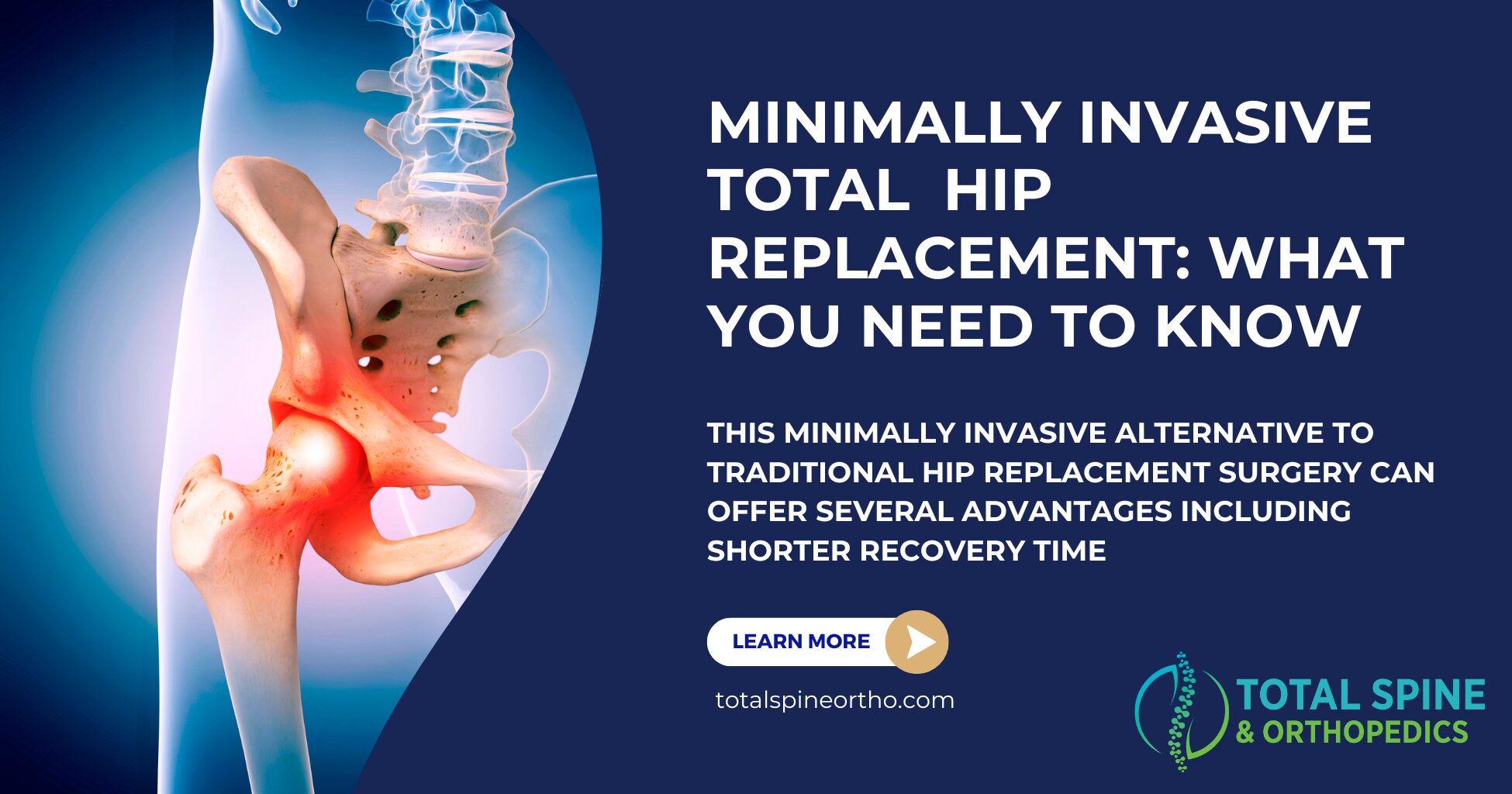When chronic hip pain becomes debilitating, affecting your daily activities and quality of life, it might be time to consider a total hip replacement. Traditional hip replacement surgery has long been effective, but advances in surgical techniques have now made minimally invasive total hip replacement an excellent option for faster recovery, less pain, and superior outcomes.
What is Minimally Invasive Total Hip Replacement?
Minimally invasive total hip replacement surgery uses smaller incisions compared to traditional procedures. Instead of one large incision, surgeons typically perform the minimally invasive version of the procedure using smaller cuts and specialized instruments. This approach preserves muscles and soft tissues, leading to significant benefits in patient recovery and postoperative outcomes.
Faster Recovery Time
One of the most attractive benefits of minimally invasive hip replacement is the considerably faster recovery period. Patients typically experience less postoperative pain, enabling them to start rehabilitation exercises sooner. Many patients find they can walk and return to their daily routines much more quickly compared to traditional methods.
Reduced Postoperative Pain
Due to the reduced disruption of muscle and soft tissue, minimally invasive hip surgery results in significantly less postoperative pain. This reduction in pain not only makes the immediate recovery more comfortable but also decreases the need for prolonged use of pain medication.
Lower Risk of Complications
Minimally invasive procedures tend to carry a lower risk of common surgical complications. Smaller incisions mean a reduced risk of infection, less scarring, and minimal blood loss during surgery. This makes minimally invasive total hip replacement an appealing option for older adults and patients with specific health considerations.
Improved Mobility and Function
With quicker rehabilitation times, patients who choose minimally invasive total hip replacement often report better long-term outcomes regarding mobility and joint function. By preserving muscle integrity, patients can achieve a fuller range of motion and greater stability, significantly improving their overall quality of life.
Shorter Hospital Stay
A minimally invasive approach typically results in shorter hospital stays. Many patients are discharged within one to two days following surgery, compared to the three to five days often required after traditional procedures. A shorter stay reduces medical costs and accelerates the transition back to normal life.
Enhanced Cosmetic Results
Smaller incisions also mean smaller scars. Patients find the cosmetic benefits particularly appealing, as the scars are less noticeable, allowing for greater confidence post-surgery.
Is Minimally Invasive Hip Replacement Right for You?
Not everyone is a candidate for minimally invasive surgery. Factors like your age, overall health, bone density, and severity of hip degeneration will be evaluated by your orthopedic surgeon. Consulting with a specialist experienced in minimally invasive hip replacement is essential to determine the best surgical approach tailored specifically to your needs.
Choosing minimally invasive total hip replacement surgery could dramatically enhance your recovery experience, offering a quicker return to your active lifestyle with less discomfort and fewer complications.
Ready to Learn More?
Schedule an appointment with our orthopedic specialists today to discuss if minimally invasive total hip replacement is the best choice for you.

